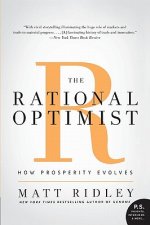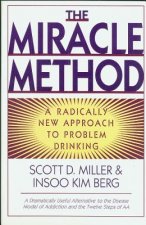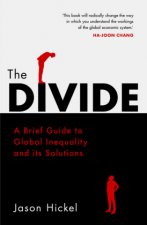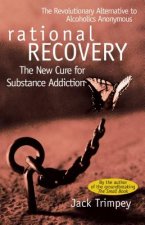
Code: 01205181
Land of Too Much
by Monica Prasad
The Land of Too Much presents a simple but powerful hypothesis that addresses three questions: Why does the United States have more poverty than any other developed country? Why did it experience an attack on state intervention st ... more
- Language:
 English
English - Binding: Hardback
- Number of pages: 344
Publisher: Harvard University Press, 2021
- More about this

You might also like
-

Hity do 3. tisíciletí 5. díl
9.57 € -16 % -

Válka pašeráků
6.14 € -

Dominoes: Quick Starter: Pebbles on the Beach
15.12 € -

Dát sbohem Studené Lhotě
3.22 € -25 % -

Die Schlümpfe - Blauschlümpfe und Schwarzschlümpfe
12.20 € -14 % -

Meaningful Texts
134.08 € -

Nero und Domitian
83.13 € -9 %
Give this book as a present today
- Order book and choose Gift Order.
- We will send you book gift voucher at once. You can give it out to anyone.
- Book will be send to donee, nothing more to care about.
More about Land of Too Much
You get 158 loyalty points
 Book synopsis
Book synopsis
The Land of Too Much presents a simple but powerful hypothesis that addresses three questions: Why does the United States have more poverty than any other developed country? Why did it experience an attack on state intervention starting in the 1980s, known today as the neoliberal revolution? And why did it recently suffer the greatest economic meltdown in seventy-five years? Although the United States is often considered a liberal, laissez-faire state, Monica Prasad marshals convincing evidence to the contrary. Indeed, she argues that a strong tradition of government intervention undermined the development of a European-style welfare state. The demand-side theory of comparative political economy she develops here explains how and why this happened. Her argument begins in the late nineteenth century, when America's explosive economic growth overwhelmed world markets, causing price declines everywhere. While European countries adopted protectionist policies in response, in the United States lower prices spurred an agrarian movement that rearranged the political landscape. The federal government instituted progressive taxation and a series of strict financial regulations that ironically resulted in more freely available credit. As European countries developed growth models focused on investment and exports, the United States developed a growth model based on consumption. These large-scale interventions led to economic growth that met citizen needs through private credit rather than through social welfare policies. Among the outcomes have been higher poverty, a backlash against taxation and regulation, and a housing bubble fueled by "mortgage Keynesianism." This book will launch a thousand debates.
 Book details
Book details
Book category Books in English Society & social sciences Society & culture: general Social issues & processes
62.95 €
- Full title: Land of Too Much
- Author: Monica Prasad
- Language:
 English
English - Binding: Hardback
- Number of pages: 344
- EAN: 9780674066526
- ISBN: 0674066529
- ID: 01205181
- Publisher: Harvard University Press
- Weight: 696 g
- Dimensions: 241 × 163 × 27 mm
- Date of publishing: 07. January 2021
Trending among others
-

Scum Manifesto
8.47 € -15 % -

Superforecasting
10.89 € -23 % -

Pedagogy of the Oppressed
10.08 € -24 % -

Future Shock
8.97 € -17 % -

Rational Optimist
15.83 € -24 % -

Drama Of Being A Child
11.09 € -22 % -

Behind the Beautiful Forevers
10.38 € -29 % -

Miracle Method
18.15 € -13 % -

Feminism/Postmodernism
50.64 € -

East and West
30.56 € -

Hood Feminism
26.53 € -30 % -

The Lucifer Effect
16.03 € -27 % -

The Second Sex
7.05 € -25 % -

Secret Lives of Introverts
13.01 € -28 % -

A Room of One's Own
7.96 € -6 % -

Shock Doctrine
14.82 € -22 % -

Alcoholics Anonymous Big Book
22.69 € -

Out Of The Shadows:understanding Sexual Addiction
15.93 € -16 % -

The Divide
11.90 € -16 % -

Regarding the Pain of Others
12.20 € -22 % -

The Feminine Mystique
9.98 € -25 % -

White Tears Brown Scars
10.08 € -24 % -

Psychopath Free
20.17 € -4 % -

Testo Junkie
22.89 € -14 % -

Prize
18.66 € -22 % -

Manifestly Haraway
18.45 € -11 % -

Food Of The Gods
15.23 € -28 % -

The Beauty Myth
6.04 € -28 % -

Toxic Parents
14.32 € -22 % -

Rational Recovery
15.23 € -24 % -

Sorry I'm Late, I Didn't Want to Come
10.99 € -23 % -

Soft Power
14.32 € -28 % -

Silently Seduced
11.59 € -28 % -

Feminism, Interrupted
13.51 € -

Blitzed
11.39 € -20 % -

Reclaiming Conversation
16.34 € -18 % -

Free from Lies
19.26 € -19 % -

From Rage to Courage
18.25 € -13 % -

Violence
11.90 € -19 % -

Vagina
10.79 € -14 % -

No Logo
11.90 € -19 % -

Great Leveler
17.44 € -12 % -

Story of My Life
6.04 € -

Stuart
13.41 € -14 % -

Feminism is for Everybody
20.98 € -14 % -

Conflict Is Not Abuse
17.55 € -16 % -

Presence
14.52 € -24 % -

Zeros and Ones
10.99 € -16 % -

BEYOND WORDS
19.56 € -15 %
Collection points Bratislava a 2642 dalších
Copyright ©2008-24 najlacnejsie-knihy.sk All rights reservedPrivacyCookies



 15549 collection points
15549 collection points Delivery 2.99 €
Delivery 2.99 € 02/210 210 99 (8-15.30h)
02/210 210 99 (8-15.30h)